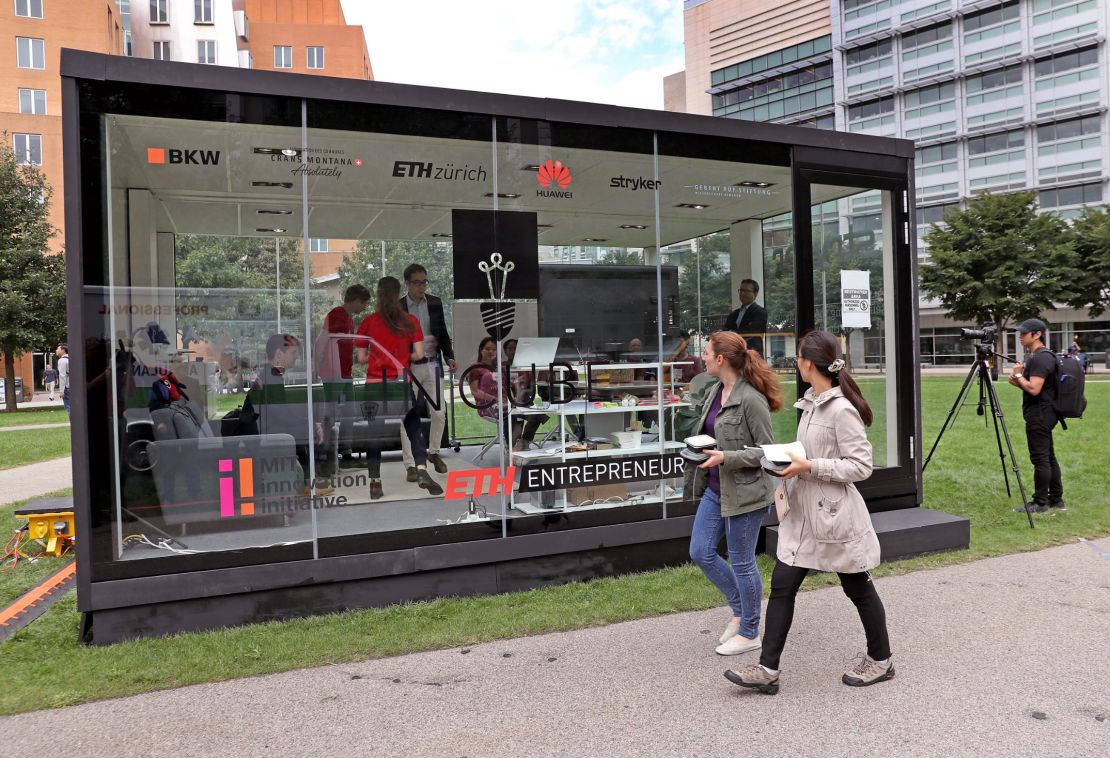The Massachusetts Institute of Technology is hitting pause on its relationships with Chinese tech firms Huawei and ZTE.
MIT, one of the top universities in the United States, said the move followed a new review of international projects or partnerships that pose an “elevated risk.”
“MIT is not accepting new engagements or renewing existing ones with Huawei and ZTE or their respective subsidiaries due to federal investigations regarding violations of sanction restrictions,” Maria Zuber and Richard Lester, the university’s vice president for research and associate provost respectively, said in a letter to the school community on Wednesday.
The administrators also said that the university had determined that working with certain countries — particularly China, Russia and Saudi Arabia — “merit additional faculty and administrative review beyond the usual evaluations.”
Any projects involving funding from people or entities from these countries, or MIT faculty or students doing work there, would face further review, they said.
The university added that it would “revisit” its collaborations with Huawei and ZTE (ZTCOF) over time, and could revise the list of countries as circumstances change.

Huawei, one of the world’s biggest providers of telecom equipment, smartphones and other devices, is under international scrutiny as the United States leads an effort to curb the company’s ambitions to become the global leader of 5G, the next generation of wireless technology.
Washington has been urging allies to restrict or ban the use of Huawei equipment in their 5G networks, alleging Beijing could use the company’s products to spy on other nations. Huawei denies that any of its products pose a national security risk.
US prosecutors have also accused Huawei and its chief financial officer, Meng Wanzhou, of violating US sanctions on Iran. Huawei and Meng deny the charges.
It is unclear what partnerships Huawei and ZTE currently have with the university. MIT didn’t respond to a request for additional comment outside of regular business hours. ZTE declined to comment on the university’s statement.
“We’re disappointed by MIT’s decision, but we understand the pressure they’re under at the moment,” a Huawei spokesman told CNN Business.
“We believe that scientific research is carried out for the benefit of all mankind, and should be free from the influence of geopolitics. Huawei denies the allegations of the US government, and we trust the US judicial system will ultimately reach the right conclusion,” he added.
As of August 2018, Huawei was listed as a member of MIT’s Media Lab consortium, which has more than 80 members that include other major tech companies such as Cisco (CSCO), Intel (INTC) and Salesforce (CRM).
The consortium provides the bulk of the lab’s annual budget of about $75 million to conduct research on technologies such as “wearable computing, tangible interfaces, and affective computing,” according to MIT’s website.
University officials said that the new review process would pay special attention “to risks related to intellectual property, export controls, data security and access, economic competitiveness, national security, and political, civil and human rights, as well as potential impacts on the MIT community, consistency with MIT’s core values, and alignment with MIT’s academic mission.”
ZTE, a Shenzhen-based firm that also makes smartphones and telecommunications equipment, was banned from buying components from American companies for several months last year. The ban was tied to ZTE allegedly breaking US sanctions on Iran.
Last month, Stanford University also suspended its partnership with Huawei, temporarily prohibiting the acceptance of gifts “and other support” from the company, according to its student newspaper.
“We are sensitive to the federal government’s concerns about technologies being appropriated by other countries to the detriment of U.S. national security,” a campus spokesperson told The Stanford Daily.
Sherisse Pham contributed to this report.























